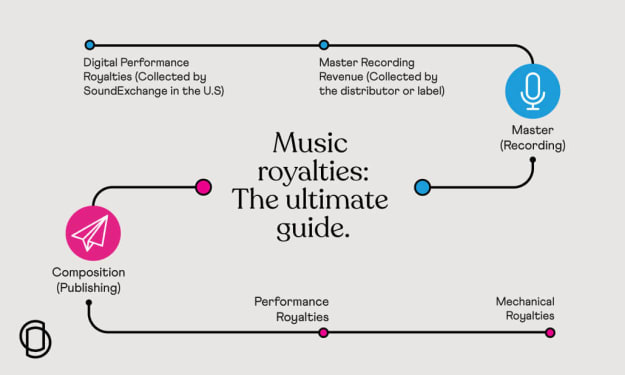Lies My Teacher Told Me
What history teachers skip or change

For the majority of the population, history class has been and always will be boring. Students consider history “irrelevant” and boring. When possible, students do the very least in their social science classes, especially history. The information given to a passive audience is forgotten as soon as possible. When high stakes testing included history, the results would reveal that the future of this nation knew extraordinarily little about the past and how the country got to where it is.
Most students of color cannot and will not learn history. There is a special dislike from these students. In the majority of history classes, these students do not see anyone of importance that looks like or acts like them. The students are unaware, until recently, that they are separated from the traditional history course. Additionally, these students find that the history of dead, white males does not interest them. Their path is not similar to those people.
Most teachers are aware of the dislike of history. Some teachers respond by abandoning the textbook in favor of reinventing the pedagogy applied. Lectures only add to the dislike of history. However, like many teachers, history educators are overwhelmed and disheartened by the demands made on the profession. History teachers often settle for less. As time goes by, more and more teachers withdraw their energy from the courses, knowing that the students are not returning their love of history. Gradually, history teachers stay ahead of their students in the textbook or return to the tried and true materials from before. These teachers only “cover” what will be on the test and the state test. It must be noted, however, that some teachers are turning the table on the older methods and are beginning to find ways to engage students. Additionally, some of this movement is because state governments have updated the standards and requirement to reflect the minority communities.
College history professors are no better. These teachers often assign reading passages and then lecture over what the student has read. Further, history professors criticize high school history teachers. This includes the notion that history was mistaught. Some college professors say that they have to reteach and correct what was taught at the high school level. College professors lament the lack of critical thinking skills that students enter college with. No other field has this happen. No other field has such a disparity between high school and college.
Furthermore, there is a huge disparity between high school and middle school or junior high, and middle school or junior high and elementary school. High school teachers lament that they cannot teach their standards because the middle school or junior high school did not teach theirs. And it continues down the line. With history not being included in state standardized testing, many teachers at the elementary level ignore history or grade level social science concepts in favor of Language Arts and Math. Those are the two subjects that are tested. Those are the two subjects that get the focus. Standards that are built on a linear progression are based on the premise that the students will be taught those standards in the grade assigned. The reality is that most students do not receive the instruction. When they arrive at the junior high or middle school level, the history class becomes a catch-all of trying to help the students understand history. In high school, the cycle repeats itself.
Having a knowledge of where one comes from and how civilization got to this point in time is important. Everyone can agree to that. Outside of history class, Americans are fascinated with history. Just look at the number of history-based television shows and books. History is rife with incredible and important stories. These stories show how history helps understand the current society. Everyone needs to and wants to know about the national collective past. What went wrong?
Teaching of history is dominated by “fidelity to the materials.” In other words, history is taught through textbooks and ancillary materials. The history textbooks are boring. Textbooks present every problem as solved. There is no conflict or suspense. Additionally, these books omit anything that might reflect poorly on American society. Until recently, textbooks ignored contributions from minorities. Most textbooks are written as if given in a lecture by a bumbling teacher.
Textbooks are not presenting the past to shape the future. These authors might ask students to consider, at a superficial level, a role in society. On Constitution Day, the students might be asked to think about what led to the Constitution or what it means. The students might be asked to contemplate 9/11 on September 11. These are never more than cursory looks. The past is never brought into to show what lead up to these incidents. The present is not a source for the textbook authors.
Voltaire once stated, “History is the pack of tricks we play upon the dead.” Textbooks are of the same mind. The authors rarely use the past to inform the present. This also becomes an issue for history itself. American Nationalism and Optimism are the culprits. These two components can become a burden for students of color, students with working-class parents, or females. This approach highlighting success and ignoring failures prevents any understanding of overcoming failure, with the exception of blaming the victim. Nationalism is seen in the contradictory desires to foster critical thinking and to indoctrinate with patriotic pride.
Over the next several weeks and months, I will look at an event in history that the history books gloss over. I will be using primary sources as the main source of these writings. Additionally, I will be telling some of the uncomfortable stories that need to be told. There are many people in history that deserve to have their stories told. I will be telling of successes and failures. I will attempt to bring to light the stories of those who have been marginalized. In this attempt, please forgive my exasperation towards those who teach history. Pacing guides and standardized testing binds them to the textbook. I understand this…But we have to do better.
Brainy Quote. Voltaire Quotes. 2020. https://www.brainyquote.com/authors/voltaire-quotes.
Fea, John. Why Study History?: Reflecting On The Importance Of The Past. Grand Rapids, MI: Baker Publishing Group, 2013.
Loewen, James W. Lies My Teacher Told Me. Vol. 1. New York, NY: Touchstone, 1995.
About the Creator
Kathy O'Neill
A veteran teacher with experience helping students become successful in their own lives beyond high school. Manager on campus as a Department Chair and Coach. Veteran Coach and Veteran leader on campus in the A.V.I.D. Program
Enjoyed the story? Support the Creator.
Subscribe for free to receive all their stories in your feed. You could also pledge your support or give them a one-off tip, letting them know you appreciate their work.






Comments
There are no comments for this story
Be the first to respond and start the conversation.